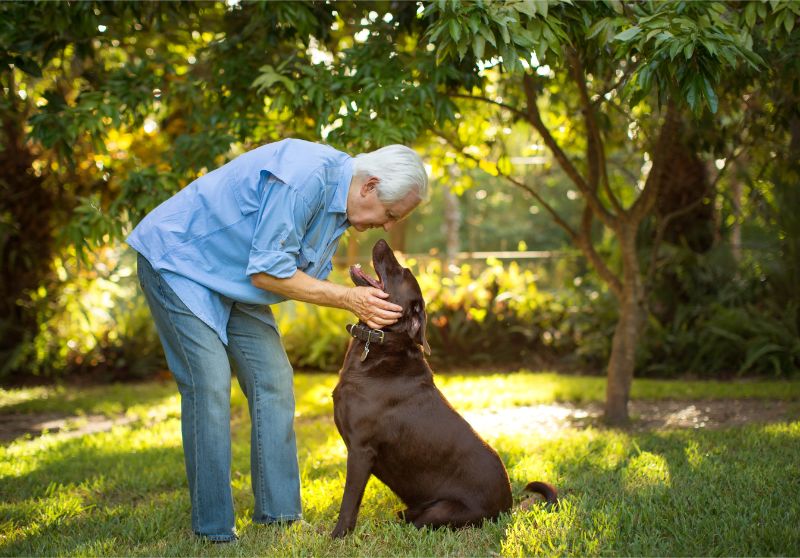Training an Older Dog: Is it Possible?

There are many great reasons to adopt an older dog. Perhaps not surprisingly, the absence of housetraining ranks pretty high. Sure, there might be accidents in the very beginning of your new relationship, but once you train them to go at certain times (and only in designated areas!) a new-to-you adult or senior dog will find their way.
But this brings up other questions about their behavior. What if you adopt an adult dog that is set in their ways; can you retrain or re-socialize them? Of course! Training an older dog is absolutely possible, and maybe even easier than with a much younger animal.
All Through Life
Dogs are fairly receptive to training at any point in their lives. Most dog owners think that they can only teach puppies how to navigate through commands or tricks, but any dog at any age can learn new skills. What’s more, older dogs have more control over their impulses and can actually be easier to train than their younger counterparts.
Training an older dog is also an excellent way to keep their aging mind sharp and engaged.
A Period of Adjustment
It is not uncommon for newly adopted dogs to arrive with a bit of baggage. They may have had a tough time prior to their adoption, and there’s no real way of knowing all they experienced. That being said, not every dog in a shelter or rescue experiences trauma or abuse. The best way to approach training an older dog is with the understanding that your new dog now has a clean slate.
They may have received some training before you adopted them, but without proof you can move forward as if they didn’t.
Without Judgement
It can take some time for any dog regardless of age to adjust to their new surroundings. When training an older dog, keep goals relatively small and attainable at first. After a month or so, you can dive into a more serious training regimen that supports your vision of peaceful coexistence. Please do not set unrealistic expectations; instead employ a relaxed tone with no stress or pressure.
Routine. Boundaries. Repeat.
Dogs respond to a strict schedule of meal times, bathroom breaks, and exercise opportunities. Training an older dog is more successful when they have a predictable routine they can rely on. This is highly stabilizing and relaxing for a pet that has come from a possibly stressful environment. Only then can they truly respond accordingly to training.
Crate training is a super effective way to provide your new dog with a secure, comforting place of refuge. Until you’re confident with their skills or behavior, their crate is the go-to place while you’re away from home or busy around the house.
Training an Older Dog
We highly recommend enrolling your newly adopted dog in obedience classes. They are not only necessary for the dog’s health and wellness, they can be fun, too (just think of all that canine socializing!). Most dog owners feel the bond with their newly adopted adult dog start to take shape during and definitely after training courses.
A Life of Love
If you have questions or concerns about training an older dog, we welcome them. We are always here for you at Leon Valley Veterinary Hospital!


